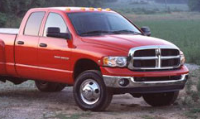Oat in place of Hoat
#11
Ok thanks. I am not from germany but from belgium. And we've got the best beer in the world. 👍
Well i had to say the hose are not little stiff but very hard to press.
Can i use a 180f thermo even i will not use my truck under high torck engine or out-road capabilities? I generally have a cool driving, limited to 2500 rpm.
Well i had to say the hose are not little stiff but very hard to press.
Can i use a 180f thermo even i will not use my truck under high torck engine or out-road capabilities? I generally have a cool driving, limited to 2500 rpm.
#12
Ok thanks. I am not from germany but from belgium. And we've got the best beer in the world. �Ÿ‘�
Well i had to say the hose are not little stiff but very hard to press.
Can i use a 180f thermo even i will not use my truck under high torck engine or out-road capabilities? I generally have a cool driving, limited to 2500 rpm.
Well i had to say the hose are not little stiff but very hard to press.
Can i use a 180f thermo even i will not use my truck under high torck engine or out-road capabilities? I generally have a cool driving, limited to 2500 rpm.
If you understand how a diesel engine works & fires off the heat & compression provided by the cylinder with no spark plug, you'll understand that the same thing happens in a gasoline engine when cylinder temps rise due to high load & higher temps as a result of that load can fire before the spark plug gets a chance to fire the mixture at the optimal point of ignition set by the computer. In our trucks, when the computer senses this detonation happening it will pull timing which lessons power & strain on the engine in an attempt to negate the heat energy from causing anymore pre-detonation.
Things that can be done to combat pre-detonation are:
Cooler engine temps, which can be done by installing a cooler thermostat & efficient radiator.
Higher Octane Fuel. Marketing companies have given people the impression that Higher Octane fuel is more explosive and therefore gives your engine more power because of that. Not only does High Octane Fuel have a slower burn rate and a higher point of ignition temp point than regular gasoline, it also adds ZERO power on its own! The Power is added by the engine management system to control timing to take advantage of the knock resistant fuel. In Short, High octane fuel resists more heat than regular gasoline and allows the engines computer to run a more optimal timing curve that itself gives the engine more power. The high octane does nothing more than to make the engine more prosperous for aggressive timing & more power and resistance to pre det.
If you have a vehicle designed to run on 87 octane, 93 will not help it perform better, though under certain conditions it may help that same engine resist pre-det under extreme loads like hill climbing & towing situations & older engines that have cylinder carbon build up causing increased heat & pressure in the cylinder.
Adding More fuel to cool the charge. This is commonly done on Boosted vehicles with turbo & superchargers to combat pre-detonation, but is also a viable option (not optimal) to help a hard working vehicle.
Cooler range of spark plug.
Last edited by JoshSlash87; 05-14-2016 at 10:22 PM.




